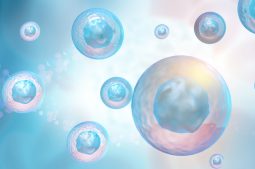When you’re trying to conceive, it’s natural that all your senses are on high alert for any little changes that might be early signs of pregnancy. Everyone knows that the first strong indicator of pregnancy is a missed period, but what about early signs of pregnancy even before a missed period? Early symptoms can be difficult to distinguish from the normal pre-menstrual syndrome symptoms experienced by so many women. To add to the difficulty of being sure, all women are different and not everyone will experience all, or even any, of these common signs of pregnancy before a missed period.
However, your body could be showing the first symptoms of pregnancy if you know what to look for. Read on for our IVI symptom-by-symptom guide to how to know if you are pregnant.
What happens in pregnancy before a missed period?
Pregnancy begins when the fertilized egg which will become the embryo implants itself in the endometrium, the lining of the womb. This event triggers the start of the production of human Chorionic Gonadotrophin (hCG), and your body will produce this hormone in progressively larger amounts during the first trimester of your pregnancy.
This is the hormone that a home pregnancy test is ‘looking’ for, and which will, if you take the test at the right time, confirm your pregnancy. However, at this point it is still too soon because levels are very low, for a pregnancy test to detect its presence. Even though it is undetectable through a test, it’s still there and still having an impact on your body. Firstly, it stimulates the production of progesterone, another pregnancy hormone, and between the two of them, they can work to stimulate some of the symptoms of early pregnancy.
What are the early signs of pregnancy?
Some of the signs of early pregnancy, even before a missed period, are like the symptoms of PMS and so for some women it can be difficult to tell the difference. Some women have strong and predictable symptoms of PMS, while others have very few or none. Likewise, some women will have durable signals of early pregnancy, for others, they can be very mild or even completely absent. Here’s a quick rundown of what these symptoms may be.
Heightened sense of smell
The hormonal changes that happen after implantation but before a missed period very often cause an olfactory super sensitivity. Smells that were mildly unpleasant before may become deeply nauseating, or odors which were previously pleasant, such as coffee or savory foods, could suddenly become smells that you wish to avoid. Nausea is a common symptom of pregnancy that normally comes along later, around four to six weeks, but for some individuals ‘morning sicknesses” can accompany the heightened sense of smell even at this very early stage.
Breast changes
Breast changes often accompany PMS, with many women reporting a feeling of tenderness or heaviness. However, as a symptom of very early pregnancy, changes to how your breasts feel can be more pronounced. PMS symptoms are not often accompanied by changes to the nipples, but in early pregnancy you could notice a darkening or increase in the diameter of your nipples. In addition to these changes, there may be an increase in the tiny bumps, known as Montgomery’s tubercles, on the areola, the circle around your nipple. These are always present but may suddenly become more prominent in early pregnancy.
Slight bleeding or spotting
A very slight bleed or spotting a few days before your period is due could be caused by implantation bleeding. When the embryo implants in the womb lining, it sometimes causes a rupture of some tiny blood vessels in the endometrium which will show as a vaginal discharge. This can be mistaken for the early onset of your next period, but you can tell the difference between menstruation and implantation bleeding because it is usually brown or pinkish rather than period-red and only lasts from a couple of hours to a couple of days.
Fatigue as a sign of early pregnancy
Your body has a lot going on in these early days. Even though you don’t have the increased pressures and bulk of the later stages of your pregnancy to deal with, unusual tiredness or even sudden overwhelming fatigue can be a signal that your body needs extra rest to adjust to the hormonal changes that are happening. Parents of newborns may advise you to make the most of it while you can!
Frequent trips to the loo
The same as with fatigue, the need for frequent urination in very early pregnancy can’t be attributed to the bulk of your growing uterus pressing on your bladder. It has a different cause. The presence of hCG triggers an overall increase in blood volume, in preparation for supporting a developing embryo and placenta. This in turn has an impact on your kidneys which need to process a higher volume of liquids, leading to more frequent urination.
Mood changes
The mood swings that accompany changes in your hormonal balance are familiar to many women with PMS monthly. They are also an inevitable and natural part of being pregnant. Often this is not a symptom that you will experience until later in your pregnancy, towards the middle or end of the first trimester, but some women can feel the impact from the very early days.
When to look for help with fertility
If you’re hoping to become pregnant and are not experiencing many or any of the symptoms of early pregnancy, remember that not all women notice anything at all, and the period we’re talking about is only a matter of days. Some of these symptoms could be noticeable around seven days after conception, but you only must wait another seven days or so before you can take a home pregnancy test.
If, despite your hopes, you haven’t conceived after a year of trying, don’t wait too long before looking for some help. You can browse our website to see which diagnostic tests and treatments are available, or just get in touch with us directly at IVI.





Comments are closed here.